Your liver is your biggest internal organ, performing more than 500 functions in your body. It is therefore vitally necessary that you take the right liver foods to continue a healthy liver.
Incorporating these foods into your diet can assist keep your liver functioning at its best: The liver produces numerous essential tasks such as secreting bile juice to help in digestion, breaking down toxins resulting from alcohol, medications, and metabolism.
A healthy liver is necessary for our overall well-being. Let us have a look at what to take and what to avoid to keep our liver in optimal health.
Foods To Include For A Healthy Liver
Carrot

Carrots are generally rich in antioxidants, vitamins, minerals, and dietary fiber. Few scientists from the National Institute of Nutrition, Jamia Osmania, Hyderabad, India, conducted a study by with carrot juice for eight weeks.
They found that carrot juice significantly reduced the DHA, triglyceride, and MUFA (Monounsaturated Fatty Acids) levels in the liver. Hence, carrots can protect you from nonalcoholic fatty liver and liver toxicity.
Green Tea

It’s a known fact that green tea contains a lot of antioxidant properties and has numerous health benefits. The main polyphenols responsible for all the morality of green tea are catechins.
Few Indian scientists verified that green tea drinkers showed a critical reduction in the risk of liver cancer, liver disease, liver steatosis, liver cirrhosis, and hepatitis. This is one of the best nutrition.
Turmeric
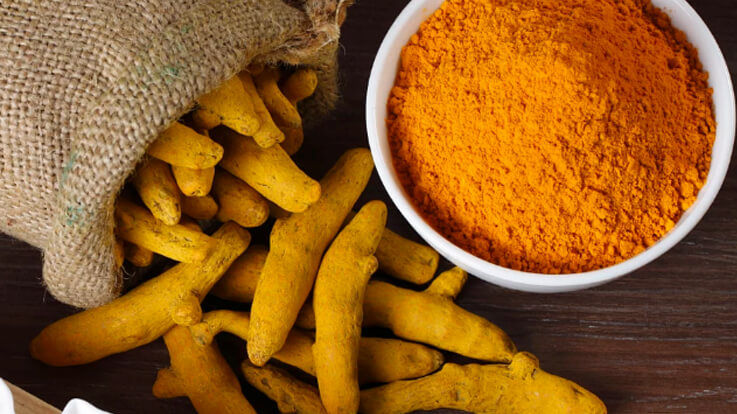
Turmeric is a yellow pigmented root that is utilized in cooking. Curcumin is the bioactive composite that is proficient for its various medicinal properties.
It possesses anti-inflammatory, antioxidant, antifungal, antiviral, and antibacterial properties — Curcumin aids to protect the liver from liver diseases and injury by decreasing inflammation, minimizing oxidative stress, and increasing lipid metabolism and insulin sensitivity.
Scientists from the Indian Medical Center experimented with patients induced liver cirrhosis. They were supplemented with turmeric for 12-13 weeks, and by the end of the 13th week, the scientists noticed that turmeric’s anti-inflammatory property inhibited the growth of liver cirrhosis.
Avocado

This buttery and nutty fruit has numerous health benefits, and preserving the liver is one of them. Avocados are rich in healthy fats that produce anti-inflammatory and antioxidant properties.
Since the nonalcoholic fatty liver is caused due to bad lifestyle choices, the anti-inflammatory and antioxidant properties of avocado are incredibly beneficial in preventing it.
American scientists found that supplementing lab subjects with avocado could suppress liver damage.
Olive Oil
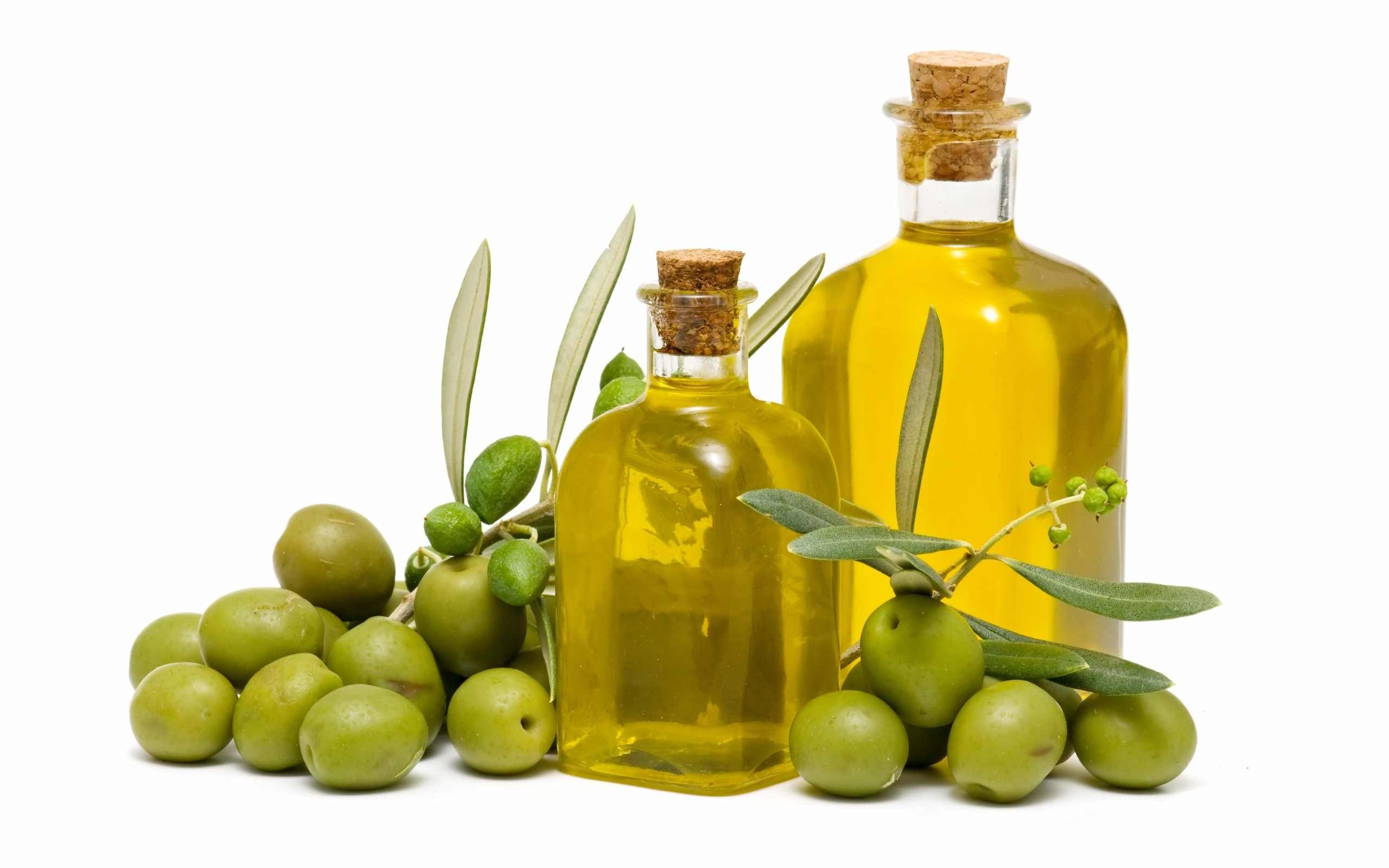
The most common liver problem is the nonalcoholic fatty liver disease that stems from unhealthy lifestyle choices. Researchers have found that people who utilize olive oil are less prone to liver diseases.
Olive oil aids to lower bad cholesterol and serum triglyceride levels and increase insulin sensitivity and lipid oxidation. Hence, you must use olive oil in food preparation to keep your liver healthy.
Apple
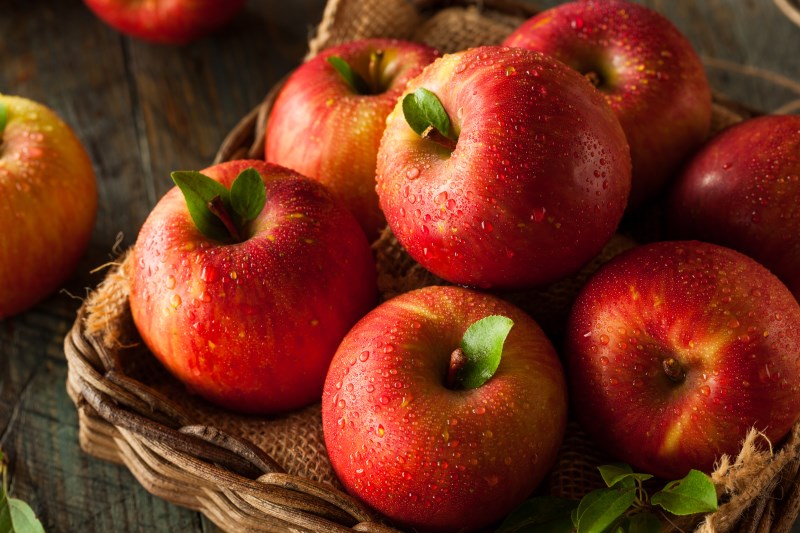
Researchers studied the effect of dehydrated apple products on liver and serum lipid levels. After three months, it was found that Apple products strongly decreased the serum and liver lipid levels.
Indian latest researchers also confirmed that apple polyphenols play a significant role in downregulating the inflammatory signaling pathway, therefore protecting the liver from different liver diseases like hepatic steatosis.
Asparagus
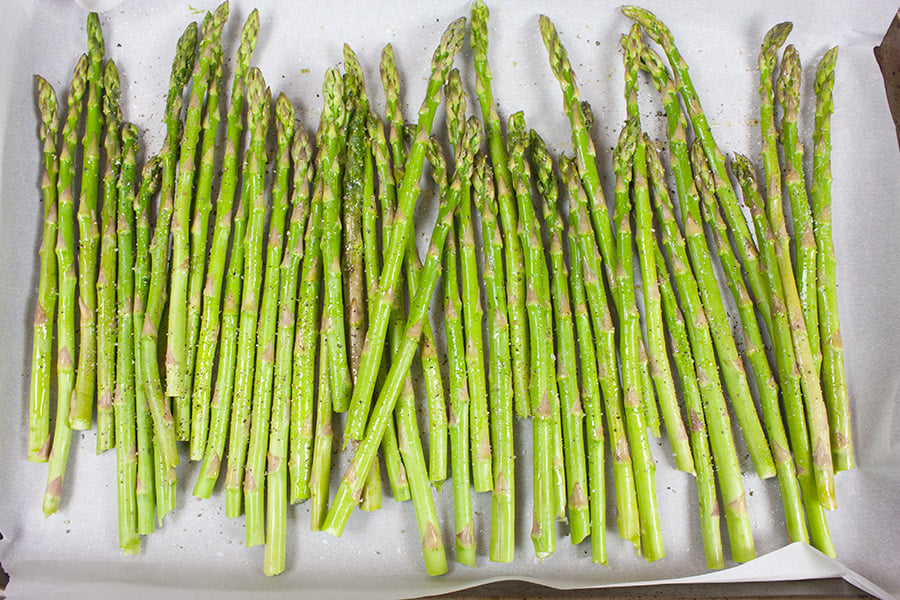
Asparagus is a fantastic source of vitamins A, C, E, K, folate, choline, and also minerals like calcium, magnesium, phosphorus, potassium, and even dietary fiber. Asparagus is historically regarded as an alcohol hangover cure.
Scientists from National University experimented with the young shoots and leaves of asparagus and found that they can help defeat the hepatoma cell growth and diminish reactive oxygen species (ROS) and other cell toxins, like hydrogen peroxide, ethanol, etc.
This verifies that asparagus leaves and shoots have liver protective properties.
Tomatoes
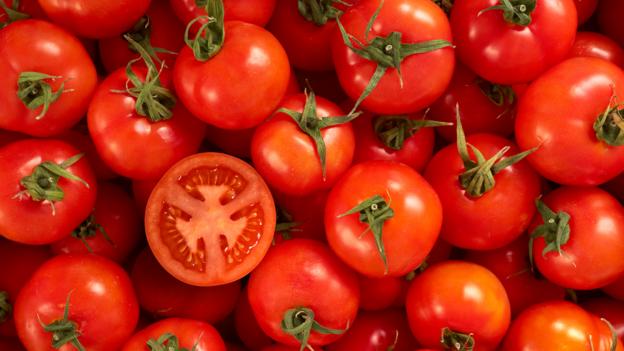
The juicy red tomatoes are also a good source for your liver. They contain a right amount of antioxidants that assist decrease liver inflammation and injury and guard against liver cancer.
Researchers did experiment with carcinogens and a high-fat diet on few people. Then, they fed the test group with tomato extract for six weeks.
They were fed tomato extract showed more resistance towards liver damage and had lower lipid and cholesterol levels, thereby confirming that tomato should be consumed to lessen the risk of liver damage and good for liver.
Types Of Food That Can Damage Your Liver
Alcohol
Alcohol is a toxin in the human body, and the liver is the principal organ efficient for filtering toxins out of the blood. Alcohol, in particular, is exceptionally damaging to liver cells and is usually associated with cirrhosis, or scarring, of the liver tissue.
Also, the liver’s principal job is to process surplus glucose, storing it in the liver and ultimately as body fat when the liver is full of glycogen.
Alcoholic beverages are usually very high in carbohydrates, making over-consumption a double whammy on the liver – a massive load of toxins to filter along with an enormous spike in glucose to process.
Saturated And Trans Fats

Overall dietary fat should, of course, be restricted, but saturated fats and trans fats present a more significant risk to the liver. Saturated fats generally come from animal products and have been revealed to raise the “bad” cholesterol, or low-density lipoproteins (LDL).
Fats of meats and dairy are saturated fats. Trans fats come from oils that have been partially hydrogenated and not only increase LDL cholesterol, but they also lower the “good” cholesterol, or high-density lipoproteins (HDL).
Trans fats are present in highly processed foods like potato chips, doughnuts, and cakes as well as candy foods bad for liver. These damaging fats will immediately overload a previously struggling liver.
Sucrose And High Fructose Corn Syrup
Cakes, candies, pastries and also other sweets all include both huge levels of sucrose (table sugar) and high fructose corn syrup, a profoundly processed form of carbohydrate. These foods all contain a high glycemic index, meaning they are all foods that raise blood sugars notably high.
The glycemic index mentions the rate at which blood sugar increases about consumption of the food, over a specific period. Foods with a high glycemic index trigger growth in insulin to process the spike in glucose.
That increase in insulin triggers the liver to start storing the extra in liver cells and, when the liver is full, it converts the excess to body fat for long-term storage. This often results in fatty liver, or nonalcoholic fatty liver disease (NAFLD).
If left unmanaged, it can expand into nonalcoholic steatohepatitis (NASH), and even cirrhosis.
Carbohydrates
Behind sugars such as sucrose and high fructose corn syrup, all carbohydrates contain to the potential to overload the liver.
Pieces of bread, pasta and other foods with white flour are frequently elevated in carbohydrates and low in fiber, delivering them a high glycemic food that will spike blood sugar levels.
Without the natural fiber obtained in whole grains, the carbohydrate is processed all at once, wherein whole grain foods, the fiber decreases down the digestive method by joining with fats and other foods in the digestive tract.
To avoid this, exclude white bread, white flour pasta and other liver foods prepared with white flour as there is little to no fiber in this over processed flour.
Below Are Home Remedies For A Healthy Liver
Support a healthy weight
If you’re obese or still somewhat overweight, you’re in danger of having a fatty liver that can lead to non-alcoholic fatty liver dysfunction (NAFLD), one of the fastest growing forms of the liver disorder.
Weight loss can play an essential part in assisting to reduce liver fat.
Eat a balanced diet
Avoid high-calorie meals, saturated fat, refined carbohydrates (like white bread, white rice, and regular pasta) and sugars.
Don’t consume raw or undercooked shellfish. For a well-adjusted diet, consume fiber, which you can get from fresh fruits, vegetables, whole grain pieces of bread, rice and also cereals.
Also consume meat (but limit the amount of red meat), dairy (low-fat milk and little results of cheese) and fats (the “good” fats that are monounsaturated and also polyunsaturated like vegetable oils, nuts, seeds, and fish). Hydration is needed, so drink a lot of water.
Exercise daily
When you exercise consistently, it aids to burn triglycerides for fuel and can also decrease liver fat.
Avoid toxins
Toxins can injure liver cells. Limit direct contact with toxins from washing and aerosol products, insecticides, chemicals, and additives. When you do manage aerosols, make sure the room is ventilated, and wear a mask. Don’t smoke.
Use alcohol responsibly
Alcoholic drinks can create many health difficulties. They can degrade or destroy liver cells and scar your liver. Talk to your doctor about what amount of alcohol is right for you. You may be encouraged to drink alcohol only in moderation or to quit altogether.
Avoid the use of illicit drugs
In 2012, nearly 24 million people aged 12 or older were current illicit drug users, meaning they had used an illicit drug during the month before the survey interview. This estimate represents 9.2 percent of the population aged 12 or older.
Illicit drugs include marijuana/hashish, cocaine (including crack), heroin, hallucinogens, inhalants, or prescription-type psychotherapeutics (pain relievers, tranquilizers, stimulants, and sedatives) used non-medically.
Avoid contaminated needles
Of course, dirty needles aren’t only related to intravenous drug use. You ought to catch up with a medicinal practitioner and seek testing following any type of skin diffusion including sharp instruments or needles.
Unsafe injection practices, though rare, may happen in a hospital setting, and would need quick follow-up. Also, use only washed needles for tattoos and body piercings.
Get preventive care if you’re exposed to blood
If for any idea you come into contact with someone else’s blood, quickly follow up with your doctor. If you’re very concerned, go to your nearest hospital’s emergency room.
Don’t share personal hygiene items
For instance, razors, toothbrushes and nail clippers can carry microscopic levels of blood or other body fluids that may be infected.
Practice safe sex
Unsafe sex or sex with various partners doubles your risk of hepatitis B and hepatitis C.
Wash your hands
Use soap and warm water directly after using the bathroom, when you have changed a diaper, and before making or eating food.
Follow directions on all medications
When medicines are taken inaccurately by taking too much, the wrong type or by combining medicines, your liver can be harmed. Never mix alcohol with other drugs and medications even if they’re not taken at the same time.
Talk your doctor about any over-the-counter medications, supplements, and natural or herbal remedies that you use.
Get vaccinated
There are multiple vaccines for hepatitis A and hepatitis B. Unfortunately; there’s no vaccine against the hepatitis C virus.
Your liver does a lot for you, like purifying your blood and breaking down food. By controlling your diet, you can return the favor and live life with a healthy, properly-functioning liver.
The fatty liver disease is usual among people who have an abnormal and erratic lifestyle. Alcohol consumption, unhealthy diet, and lack of exercise everything can head to this disease.
If you are experiencing from fatty liver disease, the first thing you should know is whether its alcohol produced or not. With proper diagnosis, you can modify your lifestyle along with taking medications, if required, to reverse this situation.


Dear Dr, Mukta,
Gone through the details.I am diabetic Hba1c -7 and have renal problem Creatinine 2.9 on 26/10/2018 and under treatment of Dr. M.V. Rao of AINU, Erra Manzil, Hyderabad for last Five years..I am regular blood deficiency Hb 10.8 and body weakness full day.You can suggest any of your supplement which can go along with allopathy medicine given by AINU without any side effects. I had used your Ginkgo Biloba and stopped last month..Now doctor vist is due next week.I also have Iron deficiency regularly.If required I can details of medicine taken at present and test reports..
So pl suggest respective supplement and diet which can be taken to improve my health condition
Hello, C S Lunia, I have mailed you asking the requirement please reply the same and I will surely help you.